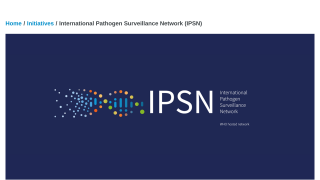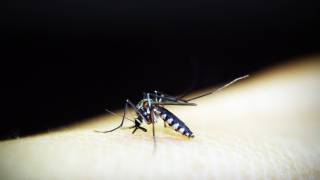Arthropods Are Responsible for Transmitting Viruses, Bacteria, and Parasites

According to the World Health Organization (WHO), vector-borne diseases account for more than 17% of all infectious diseases, leading to more than 700,000 deaths annually.
And mosquitoes, ticks, and fleas are among the arthropods responsible for transmitting many of the bacteria, viruses, and parasites that cause most vectorborne diseases.
The February 2022’s Emerging Infectious Disease Volume 28, Number 2 cover picture features a collage of images arrayed like mug shots for a number of these creatures responsible for many vector-borne diseases across the globe.
In terms of infectious disease transmission, mosquitoes are considered the most dangerous animals on earth.
There are vectors that can spread the Plasmodium parasites that cause malaria, as well as chikungunya, West Nile, yellow fever, and Zika viruses, plus 4 types of dengue virus.
In the U.S. and Europe, ticks are responsible for causing most vector-borne diseases such as Lyme disease, ehrlichiosis, babesiosis, anaplasmosis, Rocky Mountain spotted fever, Crimean-Congo hemorrhagic fever, and Heartland virus disease.
And fleas carry pathogens that cause diseases such as plague and murine typhus.
Infectious disease transmission is sensitive to local, small-scale differences in weather, human modification of the landscape, the diversity of animal hosts, and human behavior that affects vector-human contact, among other factors.
And the planet's changes impact the geographical distribution and incidence of vector-borne diseases in other countries where these diseases are already found can also impact North Americans, especially as a result of increasing international travel to tropical and subtropical areas.
For example, dengue may soon become endemic in south Florida’s warm, humid weather.
And in South America, the yellow fever virus continues spreading in various countries, even though preventive vaccines are available.
Dr. Tedros Adhanom Ghebreyesus, Director-General WHO, stated in the preface to the Global Vector Control Plan for 2030; One of the leading priorities for WHO is to improve people’s health outcomes and increase healthy life expectancy through prevention addressing social, economic, and environmental factors.
To do this, we need to elevate and strengthen vector control as a key public health service and integrate it across other sectors such as water, sanitation, and education.
This requires careful evaluation and re-alignment of national programs along with increased global financing, technical capacity, strengthened monitoring and surveillance systems, and better use of interventions.
We need new approaches that are sustainable.
That means working together through effective partnerships with increased participation of communities and others such as private industry, to develop and apply solutions for vector control, commented. Dr. Tedros Adhanom Ghebreyesus.
Vax-Before-Travel publishes fact-checked, research-based antiviral and vaccine news.
Our Trust Standards: Medical Advisory Committee
























